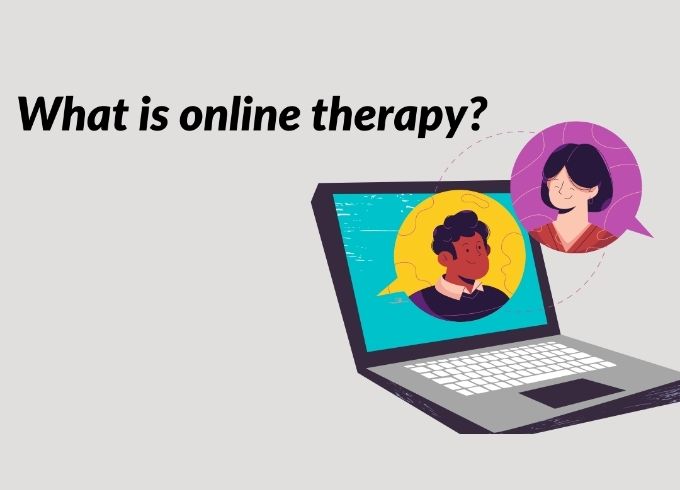Empathic Therapy: Improving Relationships Through Understanding
Within today's fast-paced world, the importance of affective connection and understanding is paramount. Individuals often find themselves feeling separation, having difficulty to express their emotions, or incapable to bond with others on a more meaningful level. This is where therapeutic empathy comes into play, offering a unique approach to well-being and fostering significant connections. Through tapping into the innate capacity to empathize, this therapeutic practice helps individuals develop a greater awareness of their personal feelings as well as the emotions of those around them.
Empath therapy promotes a deep comprehension of emotional experiences, enabling individuals to bridge gaps in interaction and strengthen their connections with others. Via guided sessions, participants learn strategies to improve their compassionate skills, ultimately leading to healthier relationships and improved emotional well-being. As empathy is nurtured, individuals often experience a heightened sense of compassion towards themselves and others, making empath therapy a potent instrument for personal growth and enhanced interpersonal dynamics.
Comprehending Empathetic Counseling
Empath counseling is a distinct approach to therapy that focuses on harnessing the deep emotional attunement of clients who consider themselves empaths. This therapy is crafted to help these people manage their heightened ability to sense and discern the emotions of others, which can sometimes feel burdensome. By providing a safe space, empath therapy promotes empaths to explore their sensations and experiences, allowing them to gain clarity and awareness into their emotional lives.
One of the essential foundational elements of this approach is the recognition of sentiments. Many empaths find it difficult with their feelings and may perceive overlooked by others. Through empath therapy, clients learn to recognize their emotions as worthy and meaningful. The therapist guides them in understanding how their emotional gifts can be a tool for empowerment rather than a liability. This acknowledgment helps empaths build self-love and kindness towards oneself, crucial elements in improving their emotional health.
Additionally, this therapeutic approach often utilizes methods focused on managing the intense feelings that empaths often experience. These can consist of mindfulness practices, centering exercises, and strategies for setting healthy boundaries. By preparing empaths with these strategies, the process strengthens them to maintain their emotional awareness while safeguarding their own mental health. This balance is crucial for cultivating deeper connections with others without feeling depleted or depleted.
The Benefits of Empathic Healing
Empath therapy offers numerous benefits for people seeking more profound connections with themselves and others and those around them. One significant benefit is enhanced emotional awareness. Through empath therapy, individuals learn to identify and articulate their feelings with greater clarity. This enhanced awareness allows for improved self-understanding and improves communication in relationships, cultivating a nurturing environment where emotions can be shared freely.
Another, important advantage is the ability to cultivate compassion and empathy toward other people. Empath therapy encourages participants to engage in active listening and recognize the experiences of those around them. This not only strengthens interpersonal relationships but also promotes a sense of belonging and togetherness. As people become increasingly empathetic, they create stronger bonds with friends, family, and colleagues, leading to more fulfilling interactions.
Ultimately, this approach can lead to improved mental health and well-being. By addressing emotional wounds and encouraging self-reflection, it helps people develop more effective coping mechanisms. The nurturing nature of empath therapy allows individuals to feel secure in expressing their vulnerabilities, which reducing anxiety and depression. This therapeutic approach enables people, helping them navigate life's challenges with resilience and focus.
Methods Used in Empath Therapy

Empath therapy utilizes a number of approaches designed to enhance affective understanding and connection among people. One fundamental approach is engaged listening, where the therapist fully interacts with the client's emotions, allowing them to express their feelings without judgment. This establishes a secure environment for clients to explore their thoughts and feelings, nurturing a deeper level of trust and insight.
Another critical technique is directed visualization, which assists clients access their compassionate abilities. therapyhelpers.com invites individuals to picture themselves in another person's position, facilitating a stronger emotional resonance. By visualizing different perspectives, clients can obtain clarity into others’ emotions and perspectives, boosting their potential for empathy and relationship.
Mindfulness techniques are also crucial to empathy therapy. Clients are guided to stay present in their emotions, observing thoughts and feelings as they come up without attachment or aversion. This mindfulness promotes awareness of self and affective regulation, essential for maintaining healthy relationships. As clients engage in these techniques, they often find that their interactions with others turn more natural and empathetic, creating meaningful connections.